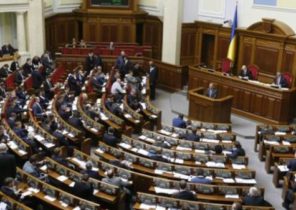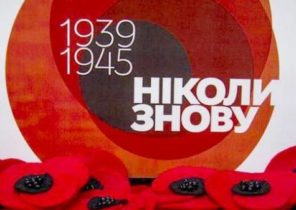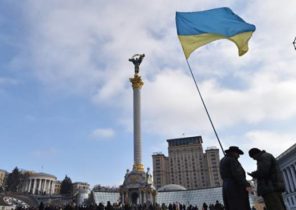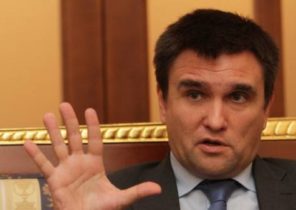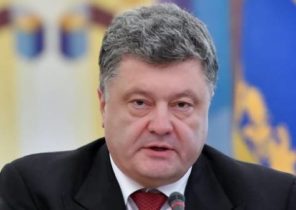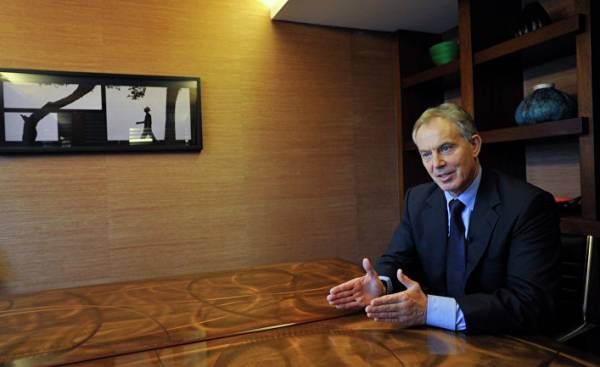
Now, when the Kingdom comes into a jingoistic and does not Bode well for the final stage of his 44-year stay in the European Union, mention of the “new labourism” Tony Blair — the end of the 1990-ies cause painful and unpleasant memories. Then the young Prime Minister took his family on vacation to Tuscany, addressed in French to the French National Assembly, and the country briefly pondered whether her move from the pound to the Euro. The love between London and Brussels has never been particularly strong.
In their relationship gradually come a cooling over the eventful decade that Blair held the post of Prime Minister. But when, in June last year the former Prime Minister sat down with his family — he and wife Cherie have four children — in front of the TV to see the results of the vote on the referendum on the British exit from the European Union, he was confident that the country will decide to keep its most important international relationship. “I thought in the end — mainly for safety reasons — people will vote to stay,” he told me recently. When the number of votes for an exit from the European Union exceeded the number of votes to stay, stunned Blair picked up the phone. “I have talked with many people — I think it is best to keep their names in secret, he said. — I needed to understand what we can do.”
Blair resigned as Prime Minister in June 2007, leaving the army weak and tired from fighting insurgencies in Iraq and Afghanistan. Handing over power to his successor and longtime Chancellor Gordon brown (Gordon Brow), he became a wandering Davos statesman. In 2008, when brown was focused solely on the financial crisis, Blair taught a course on “Faith and globalization” at Yale. Prior to 2015, Blair has been one of the ambassadors for peace Quartet — which includes Russia, the UN, the US and the EU engaged in search of ways of peaceful settlement of the Palestinian-Israeli conflict. However, he also found time to create a network of consulting companies and funds under the umbrella Tony Blair Associates, which now operates a lot of people in 20 countries. In 2015, the turnover owned by the Blair’s Windrush Ventures, Advisory services, offering their services to the government, amounted to 19.5 million pounds. Blair himself, according to some, annually receives payments in the amount of £ 2 million from JPMorgan. According to the assessment of Guardian, only the property portfolio of the family of Blair is estimated at 27 million pounds.
During their travels, which brought him considerable revenue, Blair tried to stay away from internal politics. Meanwhile the labour party has become the party ruled the country in a weakened and fragmented opposition party under the leadership of her left leader, Jeremy Corbin (Jeremy Corbyn). The results of the referendum on Bracito and the rise of populist forces in Europe and the United States in the second half of 2016 has forced Blair to reconsider his decision to leave politics. “I was always very worried about the state of the labour party, and I always wanted to a certain extent participate in its work, he said. But the outcome of the referendum on Bracito I didn’t feel that I have good reasons for returning to politics”.
Blair now sees its main task in that, as he says, to breathe new life into the “progressive centre”, that is, to find a political cous and the arguments that could convince the Europeans and Americans in the benefits of globalization and rapid technology development. He refuses such traditional political labels like left and right, liberal and conservative, preferring the dichotomy of “public / private” in the characteristics of the events occurring in the world today. “That’s what interests me, Blair said. — Is it possible to give a definition of policy which I would call a post-ideological?” At the end of last year he changed the name of Tony Blair Associates in the global change Institute, Tony Blair, to pursue this goal. For the first time in the last 10 years, Blair again began to make statements directly to the British public. In February, he addressed the representatives of the “Open Britain” (Open Britain) — group, which was formed on the wreckage of last year’s campaign in support of maintaining the United Kingdom in the European Union — to encourage the 48% of voters who opposed Brekzita, “climb” and to contest the results of the referendum. “I don’t know if we can succeed — said Blair. But I know that future generations will make us hard verdict, if we don’t try”.
Almost a year after the referendum, Britain is preparing finally to enter into long and complex negotiations to leave the European Union. This is the time of maximum capacity or maximum threat — it all depends on what point of view you adhere to. In April, the conservative Prime Minister Theresa may (Theresa May) called for June 8 the extraordinary General vote, to provide support for its tough line in the negotiations. May has promised to get the United Kingdom single market of the European Union, which accounts for half of turnover. Blair, like many other representatives of educated circles, horrified by this. “This is a catastrophic mistake, and I’m afraid that when we realize will be too late.”
The position of the former leader of the labour party looks much more clear in comparison with the position of the party Corbin, who in their attempts to respect the results of the referendum and at the same time to resist the government may, confused many voters. Putting forward your own arguments against Brekzita, Blair became one of the most powerful and consistent supporters of the European Union in the current election campaign. By the way, the 20th anniversary of the resounding victory of the “new labourism” in 1997, came in last week, causing a lot of arguments about how it has changed the United Kingdom and that could have been otherwise. Blair was again omnipresent.
It’s impossible not to fantasize about the second coming of Blair. Today, British politics is pretty dull scene, which was dominated by cautious and anxious may. Lump Brekzita overshadowing figure of his supporters, Blair has always loved important events. Weekend special groups created by HuffPost, again began to publish news about the “hole in the political landscape in the form of Tony Blair”. “Now there is not one politician who would have his rhetorical skills and his ability to appeal to common sense,” wrote analyst James Morris (James Morris). Blair’s talent as talent bill Clinton was to destroy the political boundaries of the country. He inspired a whole generation of his followers who belonged to different parties. David Cameron (David Cameron), the conservative Prime Minister, who left his post as a result of Brekzita, and his Chancellor George Osborne (George Osborne) were open followers of Blair. In private conversations Osborne called Blair a “master”.
Recently Blair was found in one incredibly cold morning in the house at Grosvenor Square, 9, who served as Blair its London headquarters after his departure from the post of Prime Minister. This house, located near the American Embassy, once belonged to John Adams (John Adams), the second President of the United States and the first U.S. Ambassador to Britain. The interior decor was luxurious. On the near-wall tables were orchids. Behind Blair on the wall hung a painting, which depicted African children playing football. He often looked past me, at the plane trees outside the window, pondering the answer to my next question. At one point the 64-year-old Blair briefly outlined the difficult choices that will face the British electorate in June: the choice between risky Brekzita program, developed by the conservatives, and the weakness of the labour party Corbin. “In this scenario — millions of politically disadvantaged people,” he said.
British liberals are frightened by the prospect of the return of Blair. You think you have already gone through this stage, but suddenly it appears again. Blair has a habit to connect index and thumb and lightly shake the brush to focus on one or another of his thoughts, which — of course, if you old enough — immediately takes you 15 years ago. However, the main impression of the Blair leaves, of course, his speech. One of the hallmarks of Blair, as British politics is its uncertainty: uncertainty place of origin, and ideology. And his voice became unconditional non-class artifact. When Blair speaks, he often swallows the sound “t” which brings it from ordinary people, and when he angry about something or speaks from a prepared speech in front of reporters, he often switches to a higher plaintive tone, becoming similar to the actor, reads Tennyson.
During our conversation, Blair is also switched from one register to another, as he often does: from low to high, with the globalist on the conversation. With regard to the immigrant component of voting on Bracito Blair said, “What should be the response of an unemployed man in the North of the UK? It should not be to prevent any pole to come here and go to work in a London pub.” I was amazed with what confidence he spoke of the “answers”. (Speaking of communities, dissatisfied with the speed of globalization and social change, he said: “the Response to this is: to educate, to build infrastructure, to provide them with the opportunity to establish contact with the modern world”.) In 2006, Blair tried to introduce biometric ID cards, however, suffered defeat at the hands of defenders. He referred to this step as one of the measures which will allow to solve the refugee problem in Europe. “The response should be not to prevent immigration, he said. The answer to this is to ensure compliance with the rules”. When I asked Blair to give a definition Blairism, he first referred to the equality of opportunity, but he was more interested in how we can constantly adapt and improve this formula. “Values are timeless, he said. — However, methods of their realization over time may change.”
The period that the British public never Blair will not forget, is the beginning of 2003, when he decided to join the ill-fated George W. Bush in Iraq. Two weeks later, after the vote on Bracito in June last year published the results of the investigation of chilcote — seven year old case about the role of great Britain in that conflict. Although the investigation released Blair from accusations that bothered him most — the accusation that the arguments in favor of the campaign was a lie — a large part of this report provides an indictment of the hasty and rash decisions of his government and the ensuing occupation of Iraq. “It is a long and painful report about the episode, which marked the moment when the United Kingdom lost its influence on the world stage, the people’s confidence in the government collapsed, and the country focused on domestic Affairs and began to disintegrate,” wrote human rights Philippe Sands (Philippe Sands) in the London Review of Books.
Of course, Blair will never agree with this point of view. On the day of publication of the report on the investigation of chilcote he held a two-hour press conference during which he once again tried to justify his decision to send troops to Iraq. “I think we made the right decision, and the world became better and safer,” he said. Whatever it was, the years that he devoted to diplomatic and consulting missions further exacerbated his views on what should be political leaders. From the point of view of Blair, a traditional centrist parties lost face and Brekzita trump partly because they are not willing to admit the uncomfortable truth to the voters. “The current political class became so weak that he feels that he needs to follow a political opinion, but not to lead them, he said. — Challenge the public considered to be something unacceptable.” Blair especially despises Mae, which last year, as Minister of the interior, called for the UK to stay in the European Union, and now heads her potentially ill-fated attempt to leave the unit. “The fact that the Prime Minister is pursuing a policy in which he really does not believe, is incredible,” he said.
Sincerity has always been a hallmark of Blair, and we never forgave him for it. Some always considered him a liar, but most of us as Blair himself, wanted Blairism turned out to be true. That is why for many Brits it has become a symbol of shame — not because Blair might have made a lot of mistakes, but because we sincerely believed in it. Blair seemed possible that great Britain finally found the magic sweet spot and was convenient for all. It could be a refuge for runaway financial capitalism and responsible welfare state. It might take a million Polish migrants and to keep a sense of humor. She could maintain equally strong ties with Europe and the United States, depending on the situation. It could engage in wars in distant countries and not to bear for it responsibility.
Breaksit was a manifestation and a result of many different processes, but it also became a symbol of the final rejection Blairism. The centre could no longer hold their positions, and the country had to choose. It could be open or closed. What will this solution will be the main theme of British politics in the next 10 years, and maybe even more. For many Brits, especially those who voted to stay in the EU and who are afraid for the future of their country, the return of Blair, should be, is the most reasonable and inspiring event. He is the best politician in the country. He has answers to all the questions. But it’s Tony Blair. “Maybe I’m not the man from whose voice must be heard these words — he admitted during our conversation. — Well, let somebody else say it. But as long as nobody says.”


